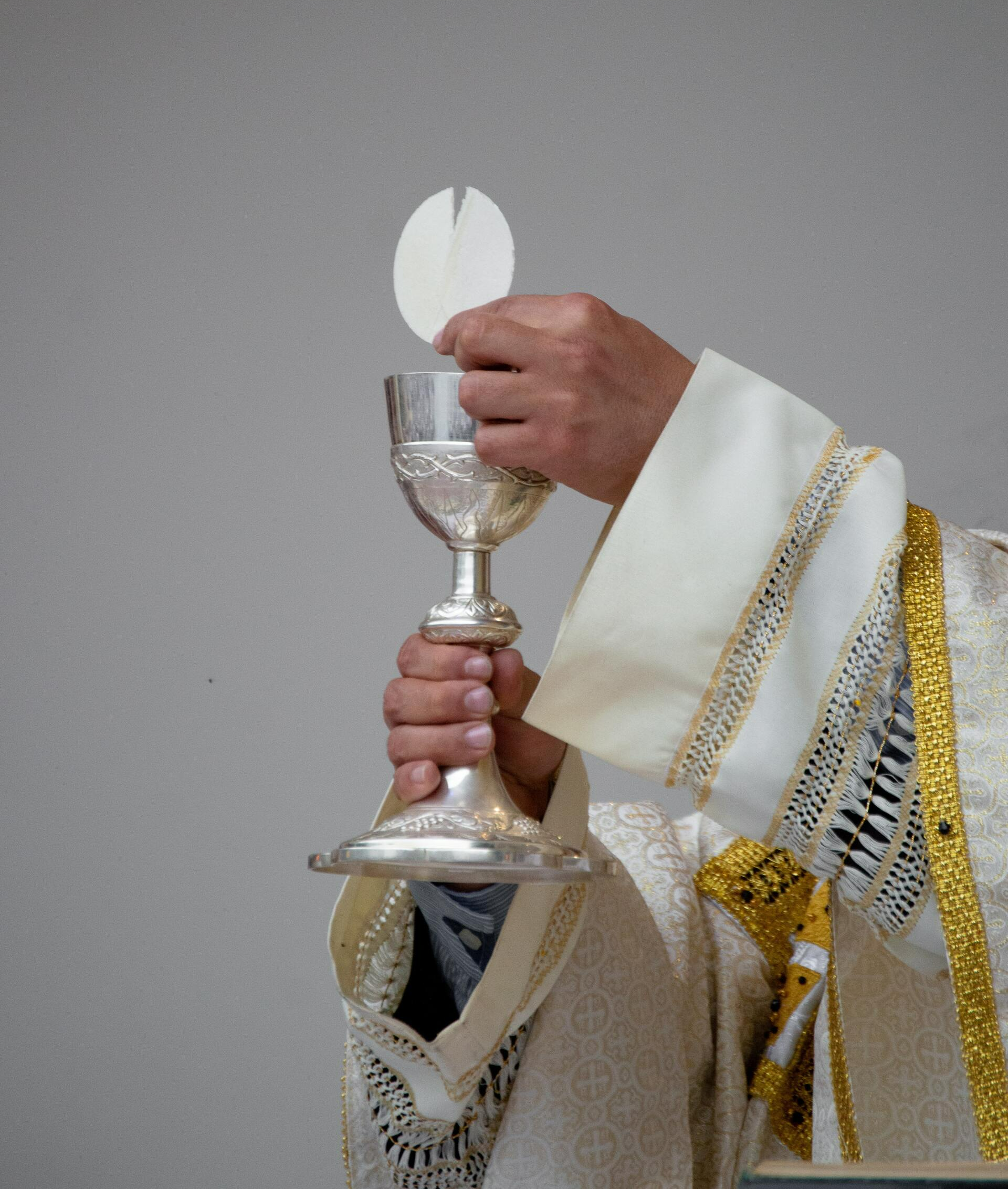Holy Communion

What is Holy Communion?
Holy Communion is also known as the Lord’s Supper or the Eucharist (from the Greek word Eucharistia which means “thanksgiving”). It takes place during every Mass when the Priest speaks the words of consecration and the bread and wine become the body, blood, soul, and divinity of Jesus Christ. Since Jesus is really present in the Eucharist, it is also called the Real Presence, the Blessed Sacrament or the Sacred Host.
It has many names, but it all means one thing: Jesus is really and truly made present for us: body, blood, soul, and divinity. In Holy Communion, faithful Catholics are invited to eat his body and drink his blood, taking Christ into themselves, just as Jesus himself bid us to do:
Jesus said to them, “Amen, amen, I say to you, unless you eat the flesh of the Son of Man and drink his blood, you do not have life within you. Whoever eats my flesh and drinks my blood has eternal life, and I will raise him on the last day. For my flesh is true food, and my blood is true drink. Whoever eats my flesh and drinks my blood remains in me and I in him.”
(John 6: 53-56)
The Eucharist is the source and summit of the Christian life. The real presence of the Lord's body and blood in the Eucharist is the enduring sign of his life among us. In this Sacrament, the Lord gives us his very self as food and drink to strengthen us to be his disciples.

The Eucharist:
- strengthens our charity;
- preserves us from future mortal sin;
- commits us to the poor;
- desires to bring unity to all Christians.

